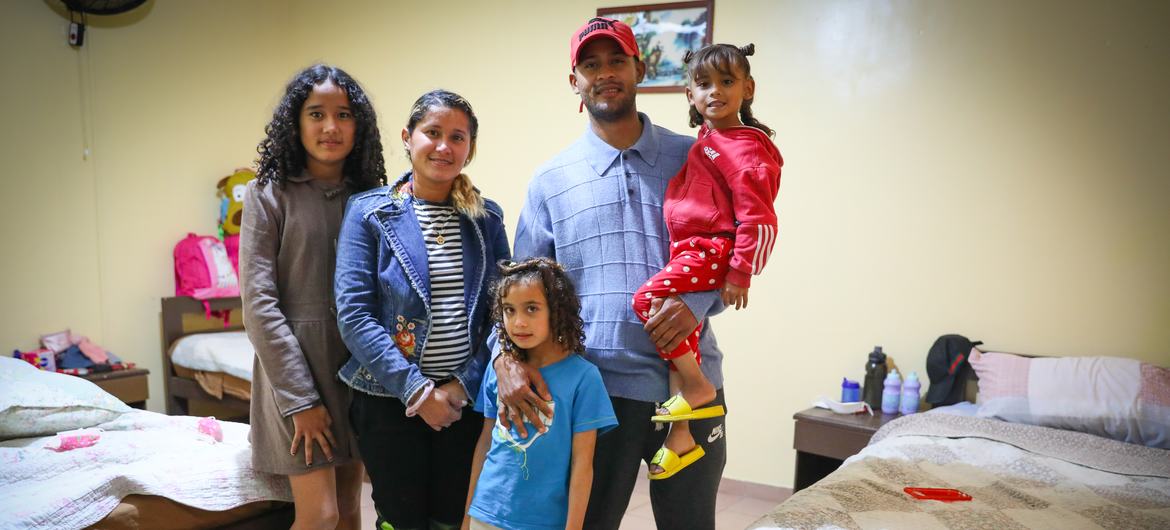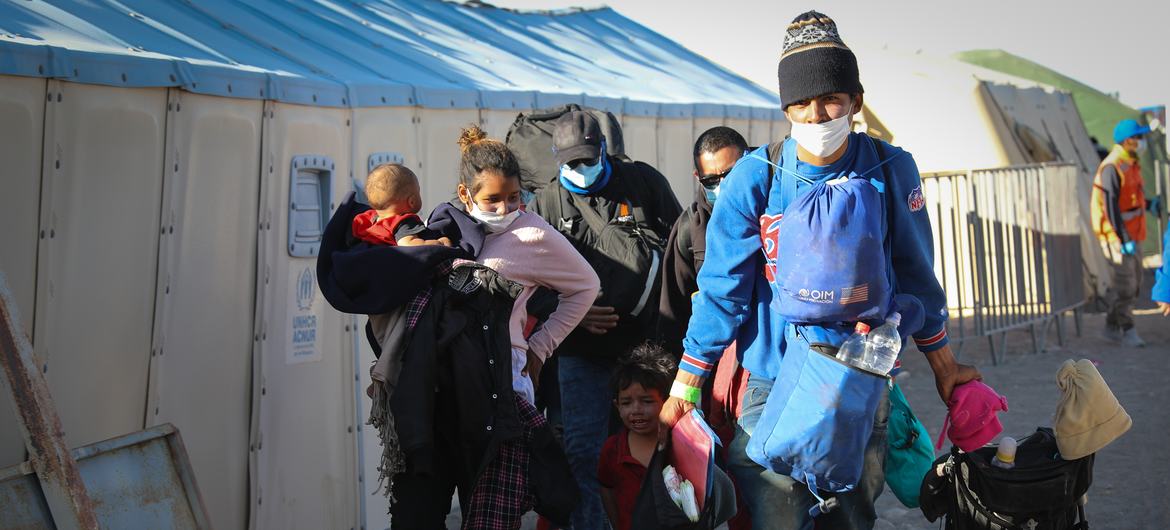After several trying months since first arriving in Chile, Francisco and his family have had to grapple with low-temperature conditions living on the streets of the City of Iquique, a drastic difference from the tropical conditions in their hometown. The family of five now finds refuge at a temporary shelter financed and managed by the International Organization for Migration (IOM).In Venezuala, he had been a construction worker, but he lost his job and covering basic necessities for his family became impossible. They decided to leave their hometown of Aragua with just 0 and a backpack of essentials, to venture upon the long walk across the Andean highlands, first crossing into Colombia, and later Ecuador, Peru, and Bolivia, sleeping rough on the streets throughout most of their journey.
Despite all these challenges, Janeth and many others are grateful for the opportunity to be able to work and support their families, both in Chile and back home in Venezuela. She dreams of regularizing her status, validating her university diploma and working as a teacher, her passion.
Venezuelan migrants Jhonny, Crisbel and their two children arrive at an IOM shelter in Chile.
Braving desert conditions and sub-zero temperatures

 Following an arduous 11-day journey by bus, she recently arrived in Chile and is determined to get to the port city of Valparaiso, approximately 2,000 kilometers south of the Bolivian-Chilean border, in order to reunite with her sister and start a new life working at a supermarket.Maria, 18, has finally achieved a degree of stability after giving birth to a healthy baby boy in Chile.
Following an arduous 11-day journey by bus, she recently arrived in Chile and is determined to get to the port city of Valparaiso, approximately 2,000 kilometers south of the Bolivian-Chilean border, in order to reunite with her sister and start a new life working at a supermarket.Maria, 18, has finally achieved a degree of stability after giving birth to a healthy baby boy in Chile.
